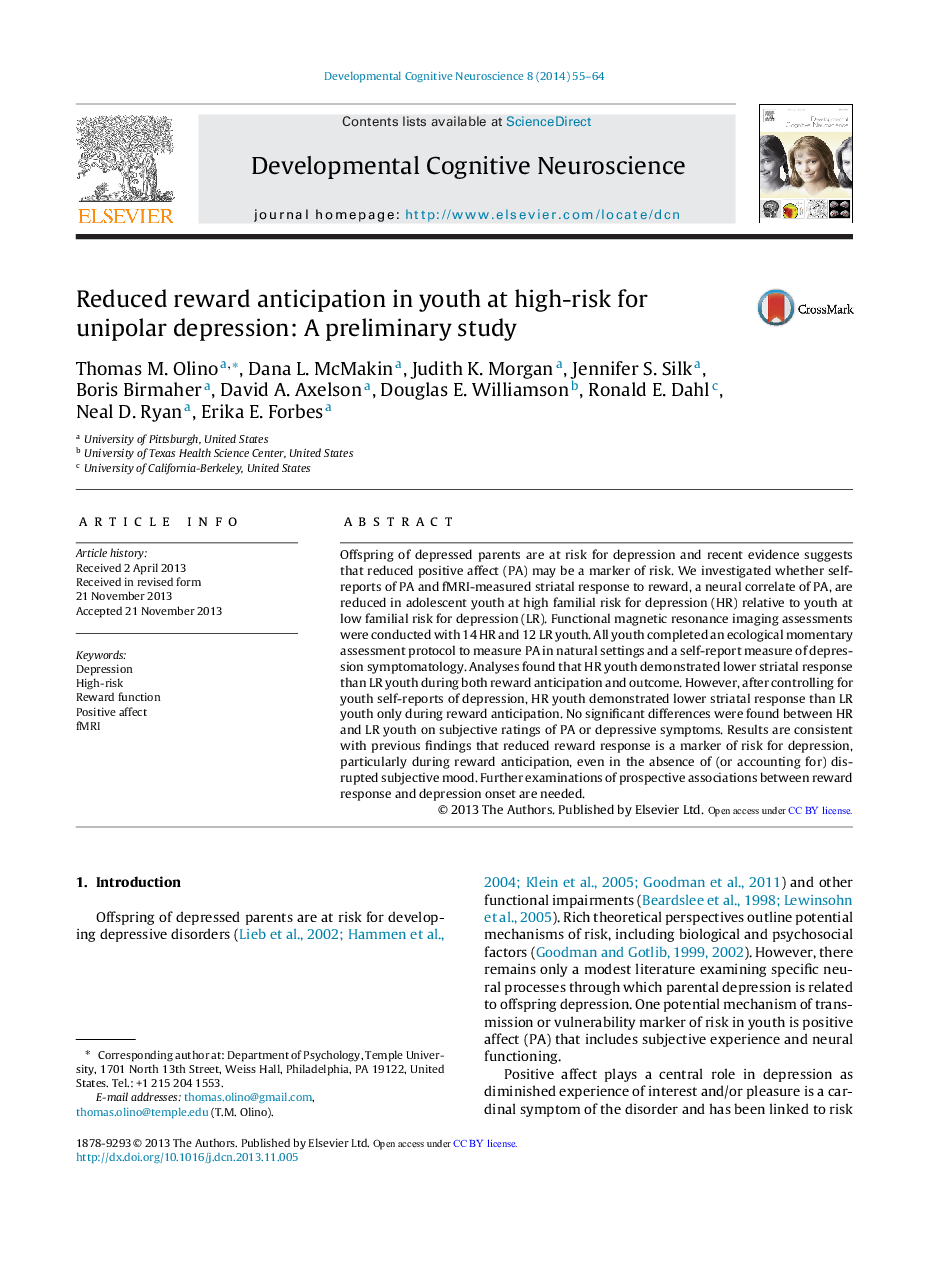| کد مقاله | کد نشریه | سال انتشار | مقاله انگلیسی | نسخه تمام متن |
|---|---|---|---|---|
| 4316649 | 1613115 | 2014 | 10 صفحه PDF | دانلود رایگان |
• Depression is characterized by reduced neural response to reward, particularly in the ventral striatum.
• Few studies have examined if alterations in reward functioning are present before the onset of depression.
• Youth at high- and low-familial risk for depression completed a reward task during a fMRI scan.
• High-risk youth had significantly less ventral striatal reactivity than low-risk youth during reward anticipation.
• Reward functioning is altered in individuals at high-familial risk for depression before the onset of the disorder.
Offspring of depressed parents are at risk for depression and recent evidence suggests that reduced positive affect (PA) may be a marker of risk. We investigated whether self-reports of PA and fMRI-measured striatal response to reward, a neural correlate of PA, are reduced in adolescent youth at high familial risk for depression (HR) relative to youth at low familial risk for depression (LR). Functional magnetic resonance imaging assessments were conducted with 14 HR and 12 LR youth. All youth completed an ecological momentary assessment protocol to measure PA in natural settings and a self-report measure of depression symptomatology. Analyses found that HR youth demonstrated lower striatal response than LR youth during both reward anticipation and outcome. However, after controlling for youth self-reports of depression, HR youth demonstrated lower striatal response than LR youth only during reward anticipation. No significant differences were found between HR and LR youth on subjective ratings of PA or depressive symptoms. Results are consistent with previous findings that reduced reward response is a marker of risk for depression, particularly during reward anticipation, even in the absence of (or accounting for) disrupted subjective mood. Further examinations of prospective associations between reward response and depression onset are needed.
Journal: Developmental Cognitive Neuroscience - Volume 8, April 2014, Pages 55–64
